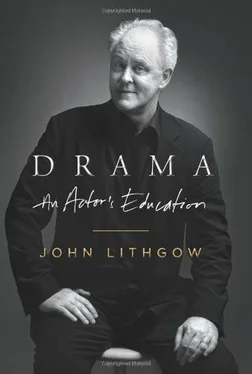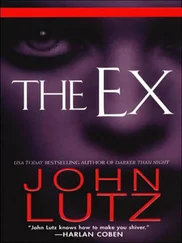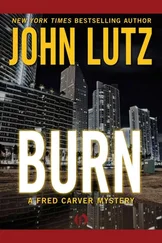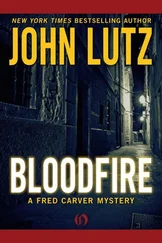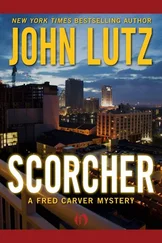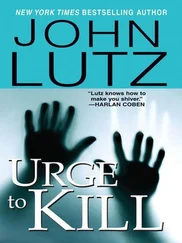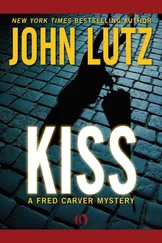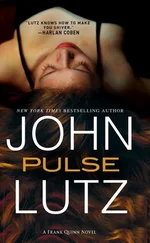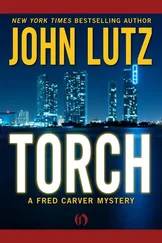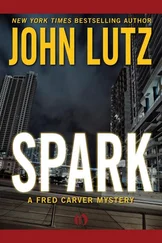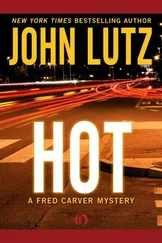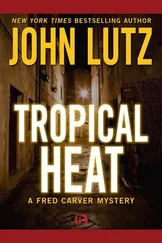John Lithgow - Drama - An Actor's Education
Здесь есть возможность читать онлайн «John Lithgow - Drama - An Actor's Education» весь текст электронной книги совершенно бесплатно (целиком полную версию без сокращений). В некоторых случаях можно слушать аудио, скачать через торрент в формате fb2 и присутствует краткое содержание. Год выпуска: 2011, ISBN: 2011, Издательство: Harper, Жанр: Биографии и Мемуары, на английском языке. Описание произведения, (предисловие) а так же отзывы посетителей доступны на портале библиотеки ЛибКат.
- Название:Drama: An Actor's Education
- Автор:
- Издательство:Harper
- Жанр:
- Год:2011
- ISBN:9780061734977
- Рейтинг книги:4 / 5. Голосов: 1
-
Избранное:Добавить в избранное
- Отзывы:
-
Ваша оценка:
- 80
- 1
- 2
- 3
- 4
- 5
Drama: An Actor's Education: краткое содержание, описание и аннотация
Предлагаем к чтению аннотацию, описание, краткое содержание или предисловие (зависит от того, что написал сам автор книги «Drama: An Actor's Education»). Если вы не нашли необходимую информацию о книге — напишите в комментариях, мы постараемся отыскать её.
Drama: An Actor's Education — читать онлайн бесплатно полную книгу (весь текст) целиком
Ниже представлен текст книги, разбитый по страницам. Система сохранения места последней прочитанной страницы, позволяет с удобством читать онлайн бесплатно книгу «Drama: An Actor's Education», без необходимости каждый раз заново искать на чём Вы остановились. Поставьте закладку, и сможете в любой момент перейти на страницу, на которой закончили чтение.
Интервал:
Закладка:
Cut forward to a half century later in Amherst, Massachusetts. There I was, a middle-aged man spending a month with my ailing parents in a cramped condo, immersed in memories of my early youth. It was probably just a matter of time before I hit on the idea of reading bedtime stories to them. I remembered Tellers of Tales , and I searched their dusty bookshelves for it. And there it was, only a little worse for wear, as if it had been waiting all those years for just such a moment. That very night, when they were all tucked in, my mother in their big sixty-year-old bed and my father in his little rented hospital bed drawn up next to her, I sprung my surprise. I showed them the old book and I told them to pick a story. And what do you suppose they picked?
“Uncle Fred Flits By,” by P. G. Wodehouse.
So I read it to them. I launched into the first paragraph with only the dimmest memory of what I was reading. As the story unfolded, more and more of it came back to me. I was astonished. It was hysterical. I had never read anything like it. It practically caught fire in my hands. The characters revealed themselves, the complications kicked in, and one by one I recognized all those moments that we had thought were so damned funny all those years ago.
And then it happened. My father started to laugh. It was a helpless, gurgly laugh, almost in spite of himself. It was like the engine of an old car, starting up after years of disuse. I kept reading and he kept laughing, harder and harder, until he was almost out of breath. It was the most wonderful sound I’d ever heard. And I’m convinced that it was sometime during the telling of that story that my father came back to life.
I’ve thought long and hard about that moment. Starting the next day, Dad rallied. His health and his good spirits began to return. He lived another year and a half. Eighteen precious months. That may not sound like a long time, but it was much longer than any of us had dared to hope for. Better still, it was a happy time. The cloud of doom that had darkened his thoughts for so long finally dispersed. Those eighteen months provided a graceful coda to his life. They were months filled with visits from family, visits from friends, reminiscences, taking stock, fond farewells, more stories, more laughter. And I can’t help thinking that it was Uncle Fred that got him going again. It was as if my father had fed off the irascible spirit of a long-dead author’s fictional creation: that fabulous flimflam artist, Uncle Fred himself.
Acting is nothing more than storytelling. An actor usually performs for a crowd, whether for a hundred people in an off-Broadway theater or for millions of moviegoers all over the globe. Reading to my parents on that autumn evening in Amherst was something else again. It was acting in its simplest, purest, most rarefied form. My father was listening to “Uncle Fred Flits By” as if his life depended on it. And indeed it did. The story was not just diverting him. It was easing his pain, dissolving his fear, and leading him back from the brink of death. It was rejuvenating his atrophied soul. Lying next to him, my mother could sense that, by some mysterious force, her husband was returning to her.
Before he went to sleep, Dad thanked me for the story as if I had given him a treasured gift. But he’d given me a gift, too. It was the gift of a father’s love. I was fifty-six years old and had known him all my life. In all those years, our relationship had changed kaleidoscopically. We had been up and down, happy and sad, close and distant. Our fortunes had risen and fallen, ebbed and flowed, rarely at the same time. But in all those years I had never felt as close to him, nor ever felt as much love for him, as I did that night.
He had given me another gift, too, although he never lived to see it bear fruit. The period I spent with my parents was one of the most significant in my life. In that memorable month, that Wodehouse story was the most memorable hour. I had spent my entire adult life acting in plays, movies, and television shows. I had told stories. I’d had a gratifying, fun, and prosperous career. Only infrequently had I paused to plumb the mysteries of my peculiar occupation. That night, however, everything came into focus. Sitting at my parents’ bedside and reading them a story, trying to help two old people feel better, came to seem like a distillation of everything my profession is about. In the years to come, my thoughts kept returning to that evening, even after my father was long gone. Finally, spurred on by the events of that night, I decided to write this book.
[1] A Curious Life
The first time I acted was before I even remember. At age two, I was a street urchin in a mythical Asian kingdom in a stage version of “The Emperor’s New Clothes.” It was 1947, and the show was performed in a Victorian Gothic opera house, long since demolished, in Yellow Springs, Ohio. A black-and-white photograph from that production shows me at the edge of a crowd of brightly costumed grown-up actors. Standing nearby is my sister Robin. She is four, two years older than I, and also a street urchin. We are both dressed in little kimonos with pointy straw hats, and someone has drawn dark diagonal eyebrows above our eyes, rendering us vaguely Japanese. I am clearly oblivious, a faun in the headlights. I stand knee-high next to a large man in a white shift and a pillbox hat who appears to have a role not much bigger than mine. He reaches down to hold my hand. He is clearly in charge of me, lest I wander off into the wings. There is very little in the photograph to suggest that, at age two, I have a future in the theater.

But I do. Later that season, in the same old opera house, I was already back onstage. I played one of Nora’s children in A Doll’s House by Henrik Ibsen. I don’t remember this performance either (and there’s no photographic record of it), but Robin was there once again, playing another of Nora’s children and steering me around the stage as if I were an obedient pet. In that production, the role of Torvald, Nora’s tyrannical husband and the father of those two children, was played by that same fellow in the white shift from The Emperor’s New Clothes . In a case of art imitating life, my onstage father was my actual father. His name was Arthur Lithgow.
Thus it was that my curious life in entertainment was launched, before I was even conscious of it, on the same stage as my father. So it is with my father that I will begin.
Arthur Lithgow had curious beginnings, too. He was born in the Dominican Republic, where, generations before, a clan of Scottish Lithgows had emigrated to seek their fortunes as sugar-growing landowners. I’m not sure whether these early Lithgows prospered, but they enthusiastically intermarried with the Dominican population. One recent day, as I was walking down a Manhattan sidewalk, a chocolate-brown Dominican cabdriver screeched to a stop, leaped out, and greeted me as his distant cousin.
Young Arthur got off to a bumpy start. Evidently, his father (my grandfather) was a bad businessman. He was naïve, overly trusting, and cursed with catastrophic bad luck. He and a partner teamed up on a far-fetched scheme to patent and peddle synthetic molasses. The partner absconded with their entire investment. My grandfather sued his erstwhile friend, lost the suit, and moved his family north to Boston, to start all over. At this point, his bad luck asserted itself. He fell victim to the Great Flu Epidemic of 1918, died within weeks, and left my grandmother a widow — penniless, a mother of four, and pregnant. Arthur was the third-oldest of her children. He was four years old. Growing up, he barely remembered even having a father.
Читать дальшеИнтервал:
Закладка:
Похожие книги на «Drama: An Actor's Education»
Представляем Вашему вниманию похожие книги на «Drama: An Actor's Education» списком для выбора. Мы отобрали схожую по названию и смыслу литературу в надежде предоставить читателям больше вариантов отыскать новые, интересные, ещё непрочитанные произведения.
Обсуждение, отзывы о книге «Drama: An Actor's Education» и просто собственные мнения читателей. Оставьте ваши комментарии, напишите, что Вы думаете о произведении, его смысле или главных героях. Укажите что конкретно понравилось, а что нет, и почему Вы так считаете.
